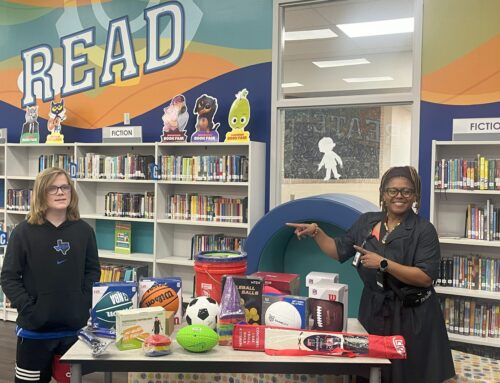Just taking two teams to the 2005 U.S. Youth Soccer National Championships in Orlando, Fla., was a feat in itself, considering that only four teams in each age category even qualify.
But after the elimination round, David Hudgell found himself in the unique situation of coaching two teams that would both play in their respective finals.
“Your biggest fear is if they both should lose, so for the kids and for yourself, it’s a bit of a sleepless night,” Hudgell recalls.
Early the next morning, right out of the gate, the Dallas Texans Red 88 team handily clinched the under-17 boys championship. The players were elated, but Hudgell was torn.
“It was two emotions, really. One was relief – finally it was done, and the kids were celebrating, but I wasn’t able to do so because an hour later I had another national final,” he says.
His time to celebrate wasn’t far off. The Dallas Texans Red 87 team soon claimed the under-18 boys championship with a comfortable 3-0 win. It had been 27 years since any team from the North Texas region won the national championship, let alone two teams in the same year – and with the same coach. And this spring, the Dallas Texans 88 team returned to the national championships to clinch the under-18 title – the first team from North Texas ever to achieve back-to-back wins.
But you won’t find Hudgell bragging. He’s quick to point out that he inherited these teams from another coach two and a half years ago.
“I’ve been very fortunate, yes,” is all Hudgell will concede about his role in the boys’ success. “It’s those players and the effort they put in and the amount of time that goes into it from the parents that needs to be acknowledged,” he says.
These people, however, are quick to heap praise on him, including neighborhood parents who spend extra time (and money) for Hudgell to teach their 11-year-olds in skill sessions each week outside of their regular practices and games.
“We think he’s the best coach in the whole wide world – don’t tell our other coach that,” says Lake Highlands resident Gina Blanton.
The majority of Hudgell’s time is spent coaching the three oldest boys’ teams in the Dallas Texans youth select league. This isn’t high school soccer, where teams are formed from players living within a certain boundary area. And it’s not recreational soccer, where turning in a form and paying a fee are all it takes to play. The 16 players on each of Hudgell’s teams try out for their spots, making them the cream of the crop from high schools throughout the metro area.
Yet Hudgell doesn’t let the fact that he coaches nationally – and internationally – renowned teams keep him from working with younger boys. About three years ago, he began coaching a group of 8-year-old neighborhood boys, the same ones who now attend his skill sessions, to get them ready for competitive soccer. They recently became old enough to try out for select teams, and both the parents and boys found it difficult to give up their coach.
“The boys love him. Perhaps ‘worship’ is a better word,” says Steven Badger, whose son was on the neighborhood team. “He is a genuinely great guy.”
Hudgell hails from Coventry, England, where both he and his love for the sport were born.
“I don’t remember not having a soccer ball close to me. I’ve always wanted to be a footballer,” he says, using the British term for the sport.
He played with a couple of clubs in England, but didn’t make it to the level he wanted, so he moved to the United States and ended up in Dallas by way of Ohio and Abilene, Texas. He had heard about opportunities here to both coach and play, and for a number of years was part of the now-defunct Dallas Sidekicks indoor league team. But Hudgell doesn’t get to play much anymore.
“I am on a roster of a men’s team, but they will say I don’t play because the coaching takes up so much time that I rarely get the opportunity,” he says.
Coaching at such a competitive level requires Hudgell to spend every weeknight at practices and every waking moment on weekends at games. Officially, youth soccer has two seasons, fall and spring, but Hudgell says it’s becoming an almost year-round commitment, with families having to work vacations around tournament schedules and, he quips, “the demands of the coach.”
“There’s a guy I know in Lake Highlands who has five kids, and they all play soccer, and that’s practicing two or three times a week plus playing one or two games on the weekend,” Hudgell says. “If you’re successful, which is really what you want, it’s hard not to be year-round.”
The boys and girls who stick it out all the way to the elite level don’t do it for the accolades. Members of Hudgell’s teams who have gone on to play for top colleges and even professional teams in Europe had to be single-minded and define themselves as soccer players because it’s not one of the top sports here, he says.
This was driven home for Hudgell recently when his team that won back-to-back national championships competed in the Super Group of Dallas Cup international tournament against professional teams from all over the world. His players won, making history as the first American team to ever take home the trophy. But the local coverage was nothing more than a few paragraphs, he says.
“Certainly in Texas, football is king. You go to Lake Highlands and see that many people watching a football game, and there’s not that many people watching a soccer game. Those players have to understand they’re not going to get as many pats on the back as they would if they were a football player or a basketball player, and for some that’s not easy,” Hudgell says. “When they’re young, the better athletes are playing soccer. Now when they get to 13 or 14, the call for them to go play football, or whatever it may be, may be too great for them not to go do it.”
He does believe the tide is turning, especially within the younger generation, and it will be up to them to take the game to a new level in America, Hudgell says. Part of generating excitement involves helping people appreciate the sport, he says, in the same way others helped him to appreciate American sports (see sidebar on page 30 for Hudgell’s tips on what to watch for in a soccer game).
For his part, Hudgell will continue to kindle a love for soccer within Dallas-area youth, including boys in our neighborhood. At a recent skill session, parents watched admiringly as he led their sons through footwork, gently correcting their mistakes and being generous with his praise.
“He’s a good communicator,” Blanton says. “A lot of coaches will just say, ‘What are you doing?’ He explains what it is he wants them to do, and then gets out there and does it with them.”
Perhaps he’s instilling them with the skills they’ll need as players of his future national championship teams? It’s a possibility, Hudgell concedes – “if they work hard enough and stick around long enough.”





